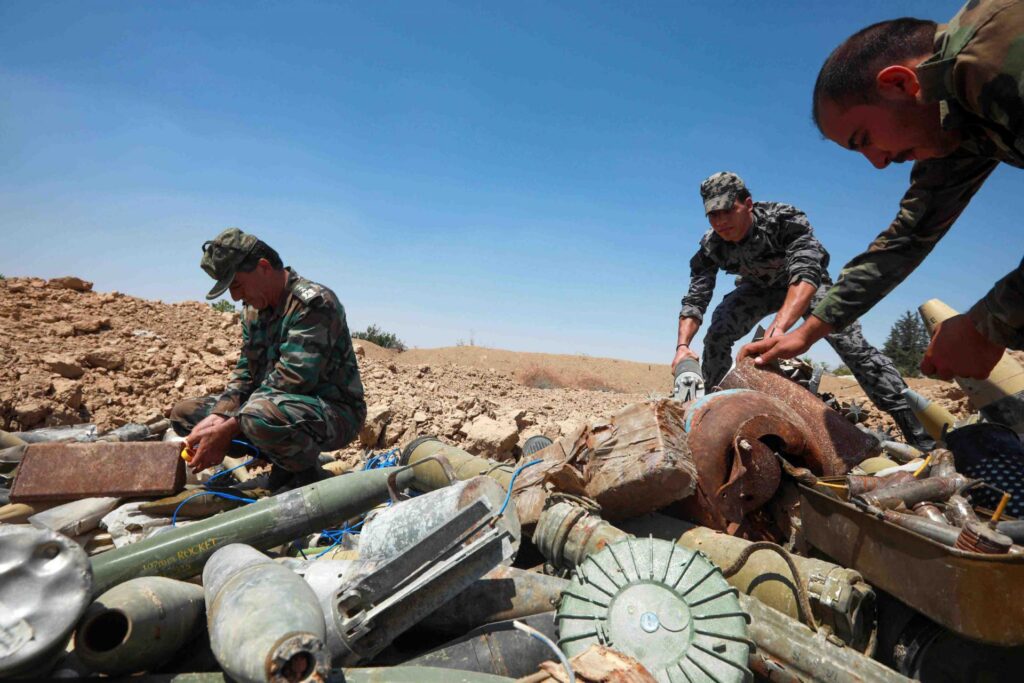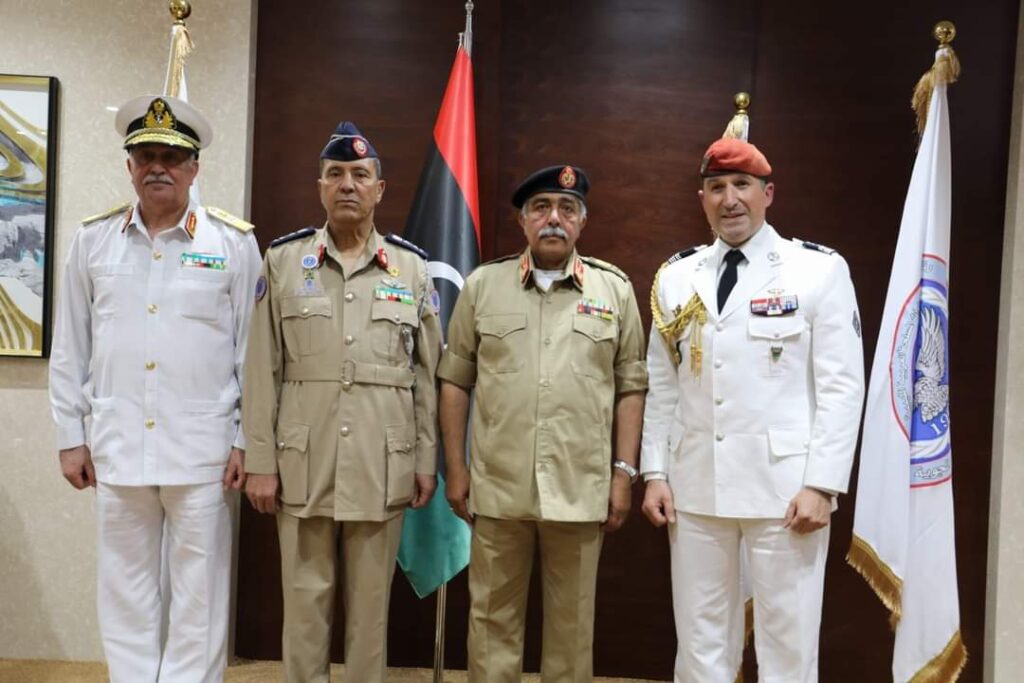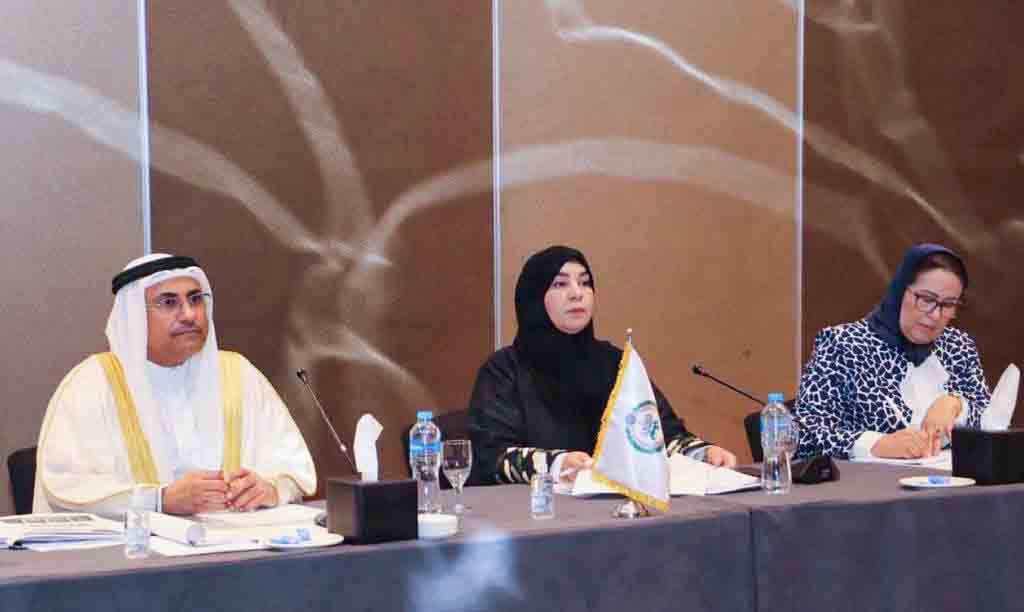NATIONAL SECURITY ISSUES
- Tunisia has received four women and five children from the Libyan authorities on Friday. They are the wives and children of ISIS fighters who were fighting in Libya. Mustafa Al-Kabir, the head of the Tunisian Observatory for Human Rights, confirmed the news and said that the handover took place at the Ras Jedir border crossing. This is not the first time that Tunisia has received such individuals, as six children were received in 2020, and another group of children was retrieved from Libya and the Syrian-Turkish border.

- The U.N. High Commissioner for Refugees (UNHCR) evacuated today 179 migrants from Libya to Niger. The group included children, women at risk, survivors of violence, people with serious medical conditions, survivors of trafficking and some who had recently been released from detention, according to UNHCR.
- The German NGO Sea-Watch has accused the Italian Coast Guard of returning around 30 irregular migrants to Libya after they were rescued by the ship “Sea-Watch 3” in late April. The Sea-Watch 3 rescued the migrants in the Mediterranean Sea and informed the Sea-Watch plane that the Italian Coast Guard had ordered them to return the migrants to Libya, based on instructions from the Maritime Rescue Coordination Centre in Rome.
-
The number of people who have landed in Malta irregularly by boat has declined considerably after Malta and Libya signed a memorandum of understanding on irregular migration, Malta reported. Boat arrivals have been on the decline since 2020, particularly since Malta and Libya signed a memorandum of understanding on illegal migration.

- Spokesman for the Municipal Council of Kufra, Abdullah Suleiman, has denied reports that over 70,000 Sudanese refugees have crossed the borders into Libya. However, he warned that more refugees are expected to arrive if the conflict in Sudan continues for more than three months.
- The International Organization for Migration (IOM) said that 484 migrants, including women and children, have been rescued and returned to Libya during the past week. “In the period of April 23-29, 484 migrants were intercepted and returned to Libya,” IOM said via Twitter.
- The Italian Coast Guard denied on Sunday having asked a merchant ship, which rescued 30 migrants, to bring them back to the North African country, according to news platform Swissinfo. This comes after Sea Watch International, a non-governmental organization, accused the Italian authorities on Saturday of making such order, which the NGO deemed to be “a violation of the non-refoulement principle”.

- In 2022, 27,400 explosive ordnances were removed in Tripoli, Misrata, Benghazi and Sirte, revealed the U.N. Mission in Libya (UNSMIL) on Monday, May 01. More than 1 million explosive remnants of war (ERW) which includes 82% projectiles and 4% small arms ammunition have been removed in Libya since 2011.

NATIONAL POLITICS AND SOCIAL ISSUES
- To recognize the critical work by Libyan partners to clear mines and explosive remnants of war across Libya, representatives of the Government of National Unity, the Libyan Mine Action Centre, UNICEF, the UN Mine Action Service and the United Nations Support Mission in Libya (UNSMIL) came together to commemorate the International Day for Mine Awareness and Assistance in Mine Action in Libya on 2 May, according to UNSMIL.
- The President of the Libyan House of Representatives, Aguila Saleh, has announced that the laws governing the presidential and parliamentary elections are ready and in effect. Saleh expressed regret that the High National Elections Commission (HNEC) and the State Council have not yet provided any feedback on amending the election laws.
INTERNATIONAL RELATIONS
- The French Embassy in Libya announced that Ambassador Mostafa Mihraje has agreed with the Minister of Higher Education in the interim Government of National Unity, Imran Al-Geeb, on the need to restore academic and scientific cooperation between the two countries.
-
The Chief of Staff of the Libyan National Army, General Abdul Razzaq Al-Nazouri, held a meeting with the military attaché of the French Embassy in Libya and his accompanying delegation on Wednesday, May 3. During the meeting, the participants discussed several topics related to the development of the military institution, with a particular focus on training, a statement from the Chief of Staff office said. The meeting was an opportunity for both sides to exchange views and ideas on how to enhance the capabilities of the Libyan Armed Forces and strengthen their cooperation with the French military, the statement added.

- Field Marshal Khalifa Haftar, the commander of the Libyan National Army, is in Rome to make contacts with Italian officials. He met with Deputy Prime Minister and Foreign Minister Antonio Tajani and may be received by Prime Minister Giorgia Meloni. Marshal Haftar has been a key player in the Libyan conflict, particularly in the fight against extremist groups in Benghazi, Derna, and Libya’s Oil Crescent. He has also been active in the vast south of Libya, where he has been fighting against various armed groups and militias.

- The Chief of the General Staff of Western Libya’s military forces, General Mohammed Al-Hadad, hosted in Tripoli today a delegation of the U.S. Department of Defense, represented by the U.S. Defense Attache to Libya, Navy SEAL Colonel Mark Amblum.

- Ahlam Al-Lafi, a member of the Libyan House of Representatives and the head of the Social, Educational, Cultural, Women, and Youth Affairs Committee in the Arab Parliament, recently chaired a committee meeting in Cairo to deliberate on pertinent issues related to social, educational, and cultural affairs in the Arab world. The meeting was convened to discuss the social status report of Arab countries, the adoption of the “International Arabic Language Competency Certificate,” and the establishment of a fund to support it.

- Italian politician, Daniele Rovinetti, has expressed concern that the ongoing chaos in Sudan will have a negative impact on the Libyan economy. Rovinetti stated in a press statement on Tuesday that the commercial links passing through southern Libya, for example, are suffering from clear communication slowdowns.
























